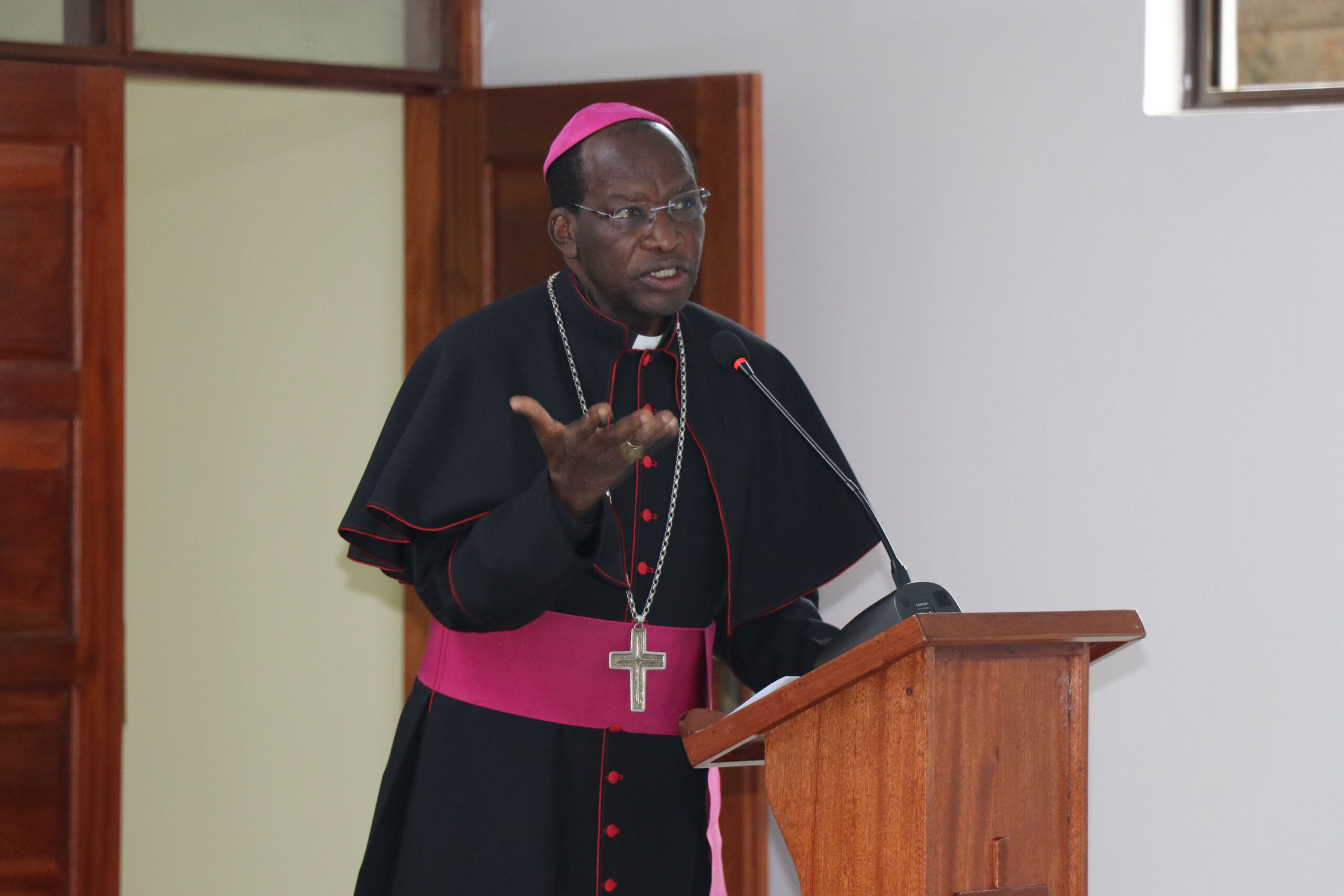KENYA: Building Bridges Between Christians, Muslims And African Traditional Religion Calls for Respectful Dialogue

Sr. Jecinter Antoinette Okoth, FSSA
In a bid to bridge the division between African Traditional Religions Christians and Muslims who have been in conflict for decades due to differences in religious ideologies, a Catholic Prelate has emphasized respectful dialogue as the way to go, at a consultative workshop on ‘Christianity in dialogue with Islam and African Traditional Religion (ATR)’, at Donum Dei in Nairobi, 9-10th April 2024, organized by the Holy See’s Dicastery for Interreligious Dialogue that brought together Catholic bishops, Christians and Muslims from various African countries including officials from the Vatican.
In his welcome remarks to over 30 participants, the outgoing President of Kenya Catholic Bishop’s Conference Most Reverend Martin Kivuva Musonde of Mombasa Archdiocese said, “This conference is a testament to the growing recognition that true progress lies not in uniformity but in respectful dialogue.”
The Archbishop disclosed that differences in religion have been seen for a long time as obstacles, rather than opportunities for growth.
“Today we choose a different path. We choose to listen, learn, and build bridges of understanding between Christianity, Islam, and African Traditional Religion,” the Archbishop said during the two-day conference at Donum Dei in Nairobi and expounded that there are historical tensions, theological disagreements, and threats of misunderstanding when the opportunities for the various religions are much greater than the challenges.
Stressing that dialogue is significant in building bridges between Muslims and Christians, Archbishop Kivuva said, “By fostering dialogue, we can dismantle stereotypes, create a more inclusive society, and work together to address the pressing issue of our time.”
Through collaboration, the prelate acknowledged that irrespective of religion, believers can work together to tackle issues of poverty, promote peace, protect the environment, and have strength in the shared values of compassion, justice, and love for neighbour.
He warned that dialogue is not just an intellectual exercise but a call to action where believers move together beyond “polite conversation into collaboration,” and where “Mosques, Churches, and Shrines become not just places of worship centres of interfaith dialogue and social action.”
The Chairman of KCCB narrated that even though the ATR Christians believe in God through the teachings of Jesus Christ as presented in the Bible and the Muslims adhere to the teachings of the prophet Muhammad as the Quran states, “A complete understanding of the religious landscape in Africa requires acknowledging the foundational role of African Traditional Religion.”
He said that overlooking ATR, “would be akin to neglecting a crucial facet of African history and cultural identity,” and that to understand the present to plan successfully for the future, “we must delve into the past.”
Archbishop Kivuva encouraged participants to have a spirit of openness and renewed commitment through the conference themed: Christianity in Dialogue with Islam and African Traditional Religion: Challenges and Opportunities.
“Understanding and appreciating our differences paves the way for collaboration on issues of shared concern. Let us move forward with a renewed spirit of cooperation, building bridges of understanding and respect,” the Archbishop concluded.
On his part, Bishop Willybard Kitogho Lagho the Chairman of the Commission for Inter-religious Dialogue and Ecumenism (CIRDE) at KCCB noted that the conference is expected to give participants especially those from the Dicastery for interreligious dialogue “a deeper understanding of the challenges the local churches in Africa face as they carry out evangelization among followers of other religions.”
Additionally, the Local Ordinary of Malindi Diocese shared his expectation for the conference organized by the Dicastery for interreligious dialogue, “I look forward to gaining a deeper understanding of the role of Christian-Muslim dialogue in overcoming violent religious extremism particularly terror attacks targeting Christians.”


